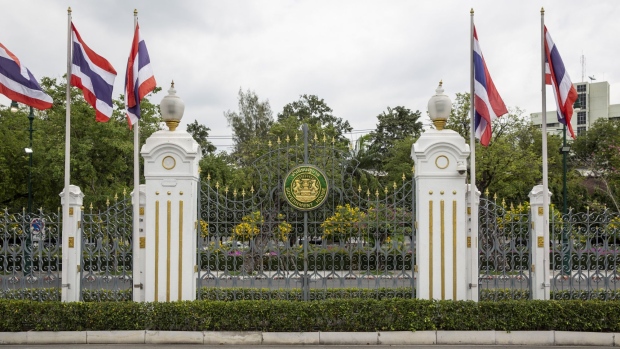Nov 30, 2022
Thai Court Upholds Key Electoral Changes as National Vote Looms
, Bloomberg News

(Bloomberg) -- Thailand’s constitutional court upheld a move by the majority of lawmakers to change key electoral rules that benefit bigger parties, clearing the last legal challenge ahead of the next general election expected early next year.
The draft election bill requires parties to clinch more votes to get one of the 100 party-list seats in the 500-member House of Representatives in the national vote. The nine-member court found it did not breach the constitution, according to a statement.
The bill, which will determine how parliamentary seats will be allocated among parties and how many votes will be required to gain one party-list seat, is one of two key legislation needed for the election due to be called by March.
The top court said it also backed the draft bill’s legitimacy, which was called into question in a petition submitted in August by 105 lawmakers from smaller parties who stand to lose the most from the change. The legislation passed the first parliamentary reading in February with rules that favored big parties by making it easier for a single party to gain a majority in the house.
Lawmakers later agreed in the second reading to change the rules to be more similar to those of the 2019 election that favored smaller parties, but their failure to conclude the reading within a 180-day time-frame meant that the draft bill was automatically reverted to the earlier version.
Among those set to benefit from the rules are the military-allied, ruling Palang Pracharath party, which won the disputed 2019 election after the charter was rewritten in the aftermath of the 2014 coup. It’s part of the military establishment which has sought to fine-tune election rules already heavily stacked in its favor.
The other beneficiary is the opposition Pheu Thai party backed by former premier Thaksin Shinawatra, whose allies have won the most seats in every national vote over the past 21 years. Pheu Thai was thwarted in forming government in 2019.
After the court’s clearance, the House will send the bill to Prime Minister Prayuth Chan-Ocha, who will nominate it for the king’s royal endorsement before it becomes law.
Previously, Thailand has re-adopted a two-ballot system for the next polls, with one vote cast for a constituency candidate and another for a party. With the rules cleared by the court, 400 parliamentary seats will be given first to winning constituency candidates and the other 100 party-list seats will be allocated based on the proportion of votes that each party receives.
Thailand’s Election Commission is preparing to hold national polls on May 7, assuming Prayuth’s government completes its four-year term on March 23, according to local media reports.
©2022 Bloomberg L.P.






